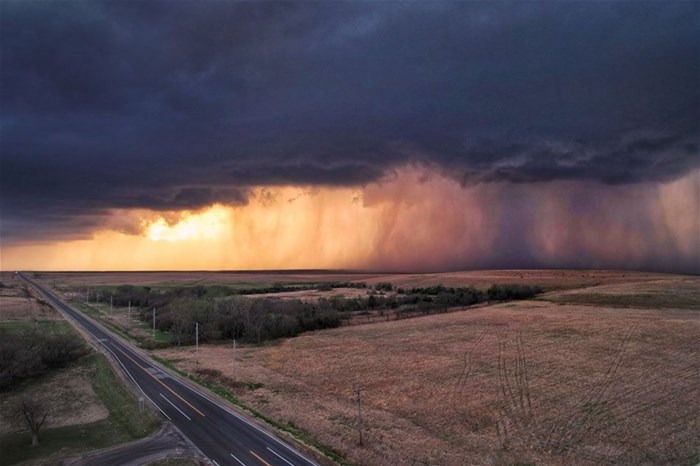
Top stories

ICTToo little, too concentrated: why AI startup funding in Africa needs rethinking
Claire Zanuso 6 hours





More news



ESG & Sustainability
Redisa calls on govt to fix South Africa’s “broken” waste management system

























Customers only engage with insurance companies during the claims process when something has been damaged – whether a home, a vehicle, or a business. That’s exactly where weather intelligence can improve and enhance the customer experience, while saving insurance companies millions in weather-driven insurance claims.
Weather-related incidents, such as hailstorms and lightning strikes, can pose significant risks to both individuals and their assets. South African insurance companies are turning to geospatial and location-based solutions company AfriGIS for a solution that creates and sends real-time weather alerts to its policyholders via SMS and WhatsApp.
The solution combines weather data, asset locations, automated messaging platforms, and API integration to empower clients with information about potential threats to their assets, including wildfires, severe thunderstorms, damaging winds, heavy rain, lightning, and hail.
While safety and customer experience are important, it all comes down to the bottom line. “By warning clients of impending weather events, insurance providers can help them to take steps to protect their assets and reduce the number of claims that are filed,” says Ockie Arnoldi, senior client consultant at AfriGIS.
This saves money on payouts and helps to keep client premiums low, while also keeping them safe. Having the capability to validate occurrences of any weather-related event specified in the claim also saves a lot of unnecessary assessor costs.

Considering vehicle warnings, Arnoldi says drivers actually take action after receiving alerts to better protect themselves and their vehicles.
“A reduction in claims can add up to millions of rands each year, simply by warning policyholders about upcoming weather events and encouraging them to find shelter. Clients are happy because their vehicles aren’t damaged, and insurance companies are thrilled because they save money on unnecessary claims. Cases when lightning threatens buildings are handled in the same manner.”
By providing timely and accurate information to clients, insurers are also improving customer satisfaction and loyalty.
“Policyholders appreciate being kept informed about potential threats to their property and assets, and they are more likely to stay with an insurance company that provides them with this valuable service,” says Arnoldi.
By reducing the number of claims that are filed, insurance providers save money on administrative costs, including the cost of processing claims, investigating damage, and paying out settlements. Again, being able to validate any weather-related claims saves on wasted assessor costs.
Key to AfriGIS’s weather alert system is its access to real-time weather data that tracks storms and other extreme weather events and assesses their potential threat from the South African Weather Service (SAWS). AfriGIS receives updates from this service every six minutes.
“Lightning sensors installed by the SAWS, for example, are distributed throughout the country, making it possible to detect lightning flashes with a 90% predicted detection efficiency and a 0.5km median location accuracy over most of the country,” Arnoldi explains.
“Considering that South Africa records more than 20 million lightning strikes per annum, this is substantial.”
This weather intelligence technology is used to set up preventative alerts to monitor the specific locations where policyholders live and work as well as tracking (temporal) locations of assets that are moving.
“If they live in or traverse the path of an incoming storm – which can be predicted up to 60 minutes in advance – they are sent alerts directly from the AfriGIS backend,” says Arnoldi. “For example, if a storm is headed through a specific community, we send alerts to clients to take action immediately. Updates on movable asset locations happen throughout the day.”
The solution avoids over-messaging by sending alerts only when necessary, and with a minimum six-hour interval between warnings.
Messaging fatigue can condition users to ignore or unsubscribe from your notifications, cutting off this communication channel and negatively impacting the business which is why it must be avoided.
Natural disasters in South Africa have led to significant social and economic losses. These will be exacerbated as a consequence of climate change. AfriGIS’s weather alerts offering demonstrates the innovative ways insurance companies can leverage technology to protect their clients and reduce costs.
“By combining real-time weather data, ability to geolocate assets and proactive client notifications and verification processes, we help insurers to safeguard policyholders’ assets while also enhancing the overall insurance experience for them,” Arnoldi says.
“This initiative highlights the potential for technology-driven solutions to benefit both insurers and policyholders in the ever-changing landscape of risk management.”